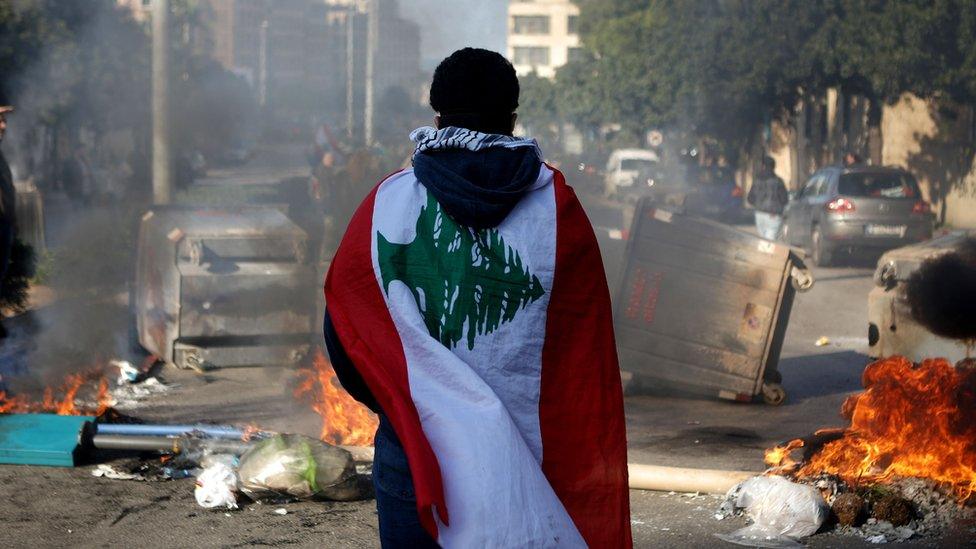Beirut explosion: Donors pledge aid for Lebanon but want reform
- Published
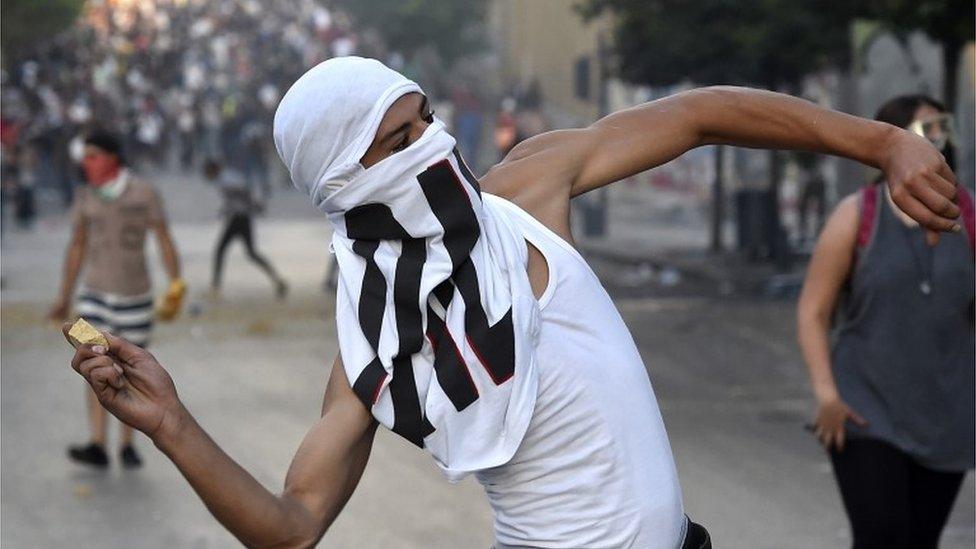
Clashes broke out in Beirut for a second day running
International donors have pledged a quarter of a billion euros in aid for Lebanon five days after the explosion which devastated a swathe of Beirut.
But an online donor summit arranged by France called at the same time for reforms to be made.
The blast at a warehouse holding over 2,000 tonnes of ammonium nitrate has focused local outrage on perceived government corruption and incompetence.
Clashes have broken out for a second day running in Beirut.
Young people calling for the government to quit threw projectiles at police and shops in central Beirut, and protesters attempted to storm barricades barring access to the parliament building. A fire broke out at the scene.
Police in riot gear used tear gas as darkness fell, echoing similar scenes during protests on Saturday.
Fifteen government leaders at the donor summit, spearheaded by French President Emmanuel Macron, promised "major resources", according to a statement.
"Assistance should be timely, sufficient and consistent with the needs of the Lebanese people," it said, adding that help must be "directly delivered to the Lebanese population, with utmost efficiency and transparency".
The donors were prepared to help Lebanon's longer term recovery if the government listened to the changes demanded by the country's citizens, the communique said.
President Macron's office said France had received pledges worth €252.7m ($297m, £227m) from the summit.
Officials estimate the explosion caused up to $15 billion (£11.5bn) of damage.
It left at least 158 people dead, 6,000 injured and 300,000 homeless. It emerged that the ammonium nitrate had been left at the port warehouse for six years despite repeated warnings it was dangerous.
Staff at this barber shop are haunted by flashbacks of the moment the blast hit
Lebanon is in the midst of its worst economic crisis since the 1975-1990 civil war, with daily power cuts, a lack of safe drinking water and limited public healthcare.
The currency collapsed and Lebanon defaulted on its debt in March. Talks with the International Monetary Fund (IMF) on a $10bn bailout have stalled.
It is feared that the effect of the explosion on the economy could significantly worsen the prospects of recovery.
The government has begun losing ministers critical of its failings.
Environment Minister Damianos Kattar was the second to leave the cabinet on Sunday, bemoaning a "sterile regime that botched several opportunities".
His resignation followed that of Information Minister Manal Abdel Samad, who cited the failure to reform and the "Beirut catastrophe" as her reasons for going.
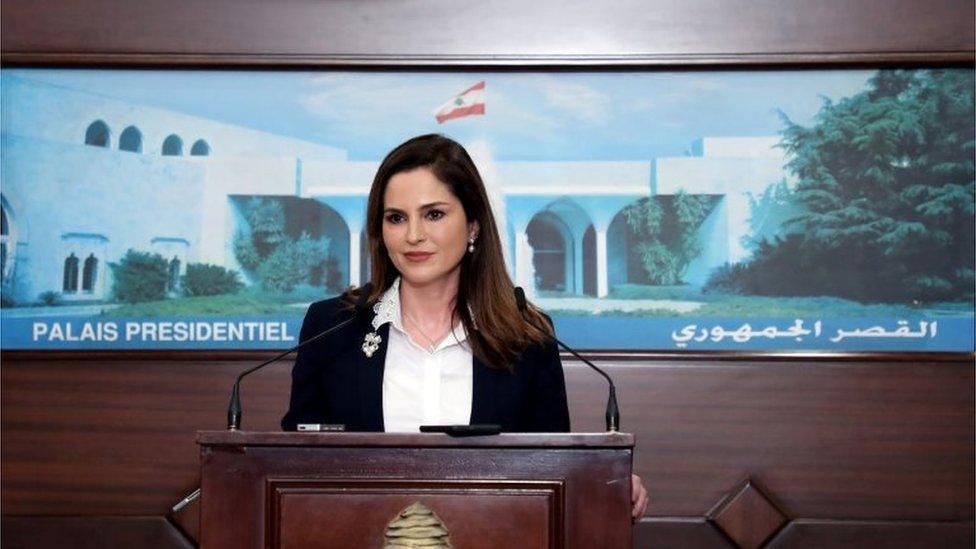
Manal Abdel Samad is the first minister to resign in the wake of the blast
Who pledged what?
Among promises made during the summit were:
European Union - extra €30m ($35m, £27m), on top of €33m promised earlier
UK - additional £20m; £5m aid package announced earlier this week
Germany - €10m; €1.5m earlier
France - reconstruction material, medical and food aid
Spain - to send wheat, shelters, medical supplies
Switzerland - $4.38m
US - $15m so far
Qatar - $50m
Kuwait - $40m
Denmark - €20m
Norway - €6.5m
The United Nations has said more than $100m (£76m) is needed for both emergency humanitarian aid, such as food and water, and the rebuilding of infrastructure, including hospitals and schools.
The summit took place online due to the coronavirus pandemic.
President Macron, speaking from his summer residence in southern France, called for "an impartial, credible and independent inquiry" into how the disaster was allowed to happen.
France is the former colonial power, and Mr Macron was the first world leader to visit Beirut in the days after the blast.
But Lebanese President Michel Aoun has already ruled out an international investigation.
Alluding to Saturday's protests, the French president said it was up to the government "to respond to the aspirations that the Lebanese people are expressing right now, legitimately, in the streets of Beirut".
But he added that neither violence nor chaos should prevail, adding: "Lebanon's future is at stake."
President Trump also joined the summit and echoed calls for a transparent investigation, saying the US would be able to assist, according to a White House statement.
"The president called for calm in Lebanon and acknowledged the legitimate calls of peaceful protesters for transparency, reform, and accountability," the statement said.


- Published9 August 2020
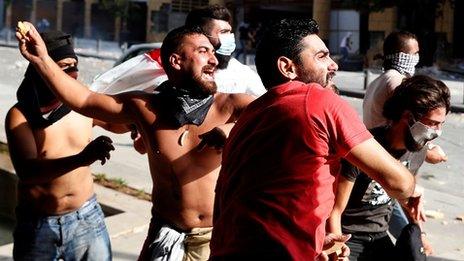
- Published8 August 2020
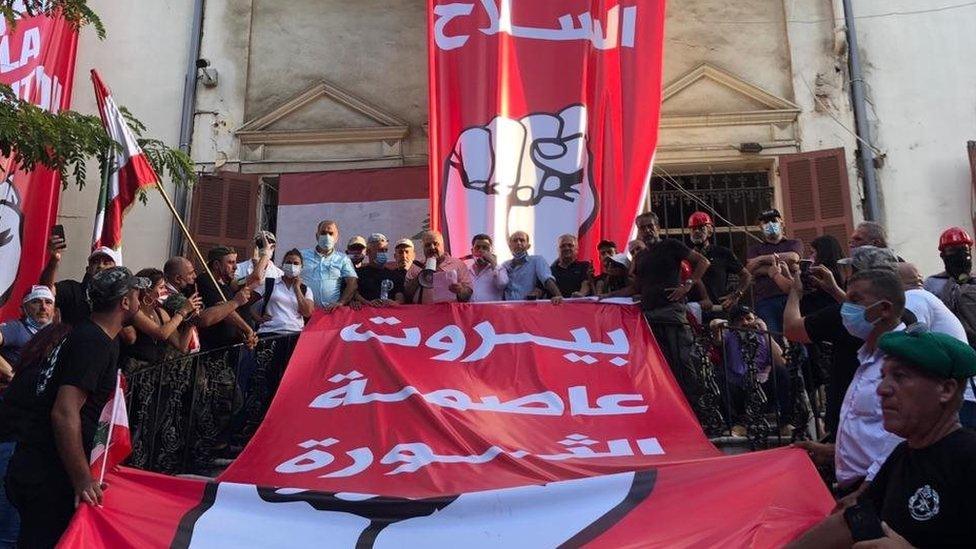
- Published7 August 2020
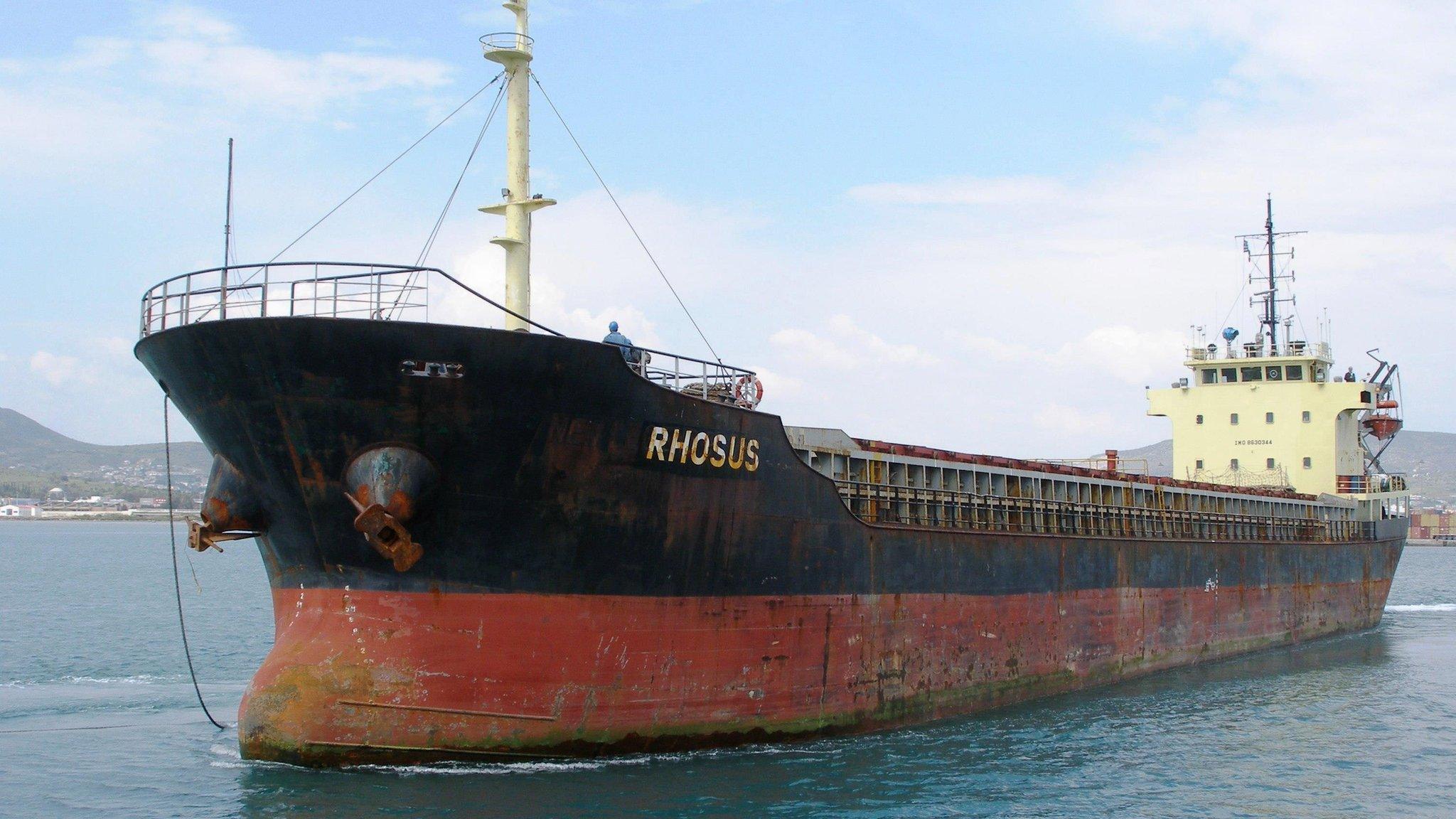
- Published5 August 2020
